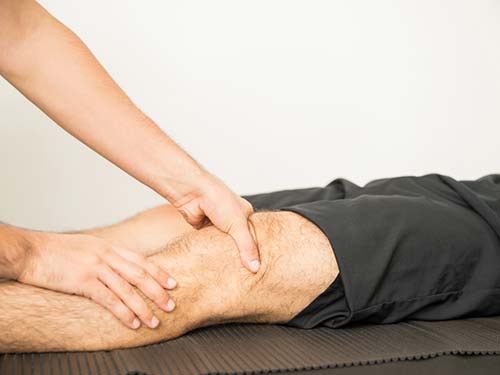


The team at Physiotherapy @ SORSC doesn’t just treat patients who have had orthopaedic surgery. We have highly experienced Physiotherapists who can diagnose and treat most injuries and pain conditions.
Our physiotherapists are highly trained and assess each person based on their individual injury and goals. We use up-to-date treatment approaches that are based on research as well as clinical experience. We are registered AHPRA practitioners and engage in further study programs on a yearly basis to ensure we provide the best treatment for you.
Select a link below to learn more about specific conditions
Note: Our information pages are on our sister site Glebe Physio. Don’t forget tocome back to Physiotherapy @ SORSC to make a booking
Physiotherapy – Upper Body
Physiotherapy for Shoulder Pain
Physiotherapy for Elbow and Forearm Pain
Physiotherapy for Hand, Wrist and Finger Injuries
Physiotherapy for Headaches
Physiotherapy for Jaw Pain (TMJ)
Physiotherapy – Trunk and Spine
Physiotherapy for Lower Back Pain
Physiotherapy for Neck Pain
Physiotherapy for Mid and Upper Back (Thoracic Spine) Pain
Physiotherapy – Lower Body
Physiotherapy for Knee Pain
Physiotherapy for Hip Pain
Physiotherapy for Groin Pain
Physiotherapy for Foot Pain
Physiotherapy for Ankle Pain
Physiotherapy for Calf and Heel Pain
Physiotherapy for Shin Pain
Physiotherapy for Front of Thigh (Quads) Pain
Physiotherapy for Back of Thigh (Hamstring) Pain
What to Expect at Physiotherapy
Arriving for the appointment:
At your first physiotherapy appointment, you will be asked to arrive 10 minutes ahead of the appointment time to complete a short form about your injury. If you have any paperwork related to your injury, please bring this with you. This may include scans, reports, previous treatment, doctor’s letters etc.
Initial Consultation (45-60min):
Assessment: During the consultation, we will ask you a series of questions regarding the condition, any contributing factors, as well as your background medical history and future goals. We will then assess the relevant body part thoroughly and form a diagnosis.
Treatment: After the assessment, we will explain to you our findings and relevant treatments that are known to be effective for your condition. We will then commence the treatment, which may involve “hands-on” physiotherapy techniques, as well as personalised exercises that help the body repair the injury and prevent re-occurrence.
Follow-up Consultations (30min):
Most injuries will require a number of follow-up appointments to continue treatment and progress the exercise program. This ensures you fully recover from the injury in a timely manner, return to your chosen activity and achieve your goals. The number of follow-up appointments differs for each case and we will be happy to discuss this with you. Many injuries re-occur when not treated fully. We have a strong philosophy of prevention, so we will provide you with strategies to reduce the risk of the injury returning.
Do I need a referral to make an appointment?
No. Physiotherapists have been first-contact, primary healthcare professionals in Australia since 1976. That means that you can book a physiotherapist appointment without seeing your doctor first. Many of our patients are referred from GPs and specialists but many choose to see us themselves.
How much does an appointment cost?
For our latest pricing, please see our fees page.
Do you accept private health insurance?
Physiotherapy is covered by private health funds as part of “extras” cover and we have HICAPS facilities to charge your health fund on the day of the appointment. The amount that your private health fund pays will depend on your policy.
Is physiotherapy covered by Medicare?
Physiotherapy is generally not covered by Medicare but you can get part funding from Medicare through a Chronic Disease Management Plan if your GP refers you with one of these.
For more, visit our Frequently Asked Questions page.

